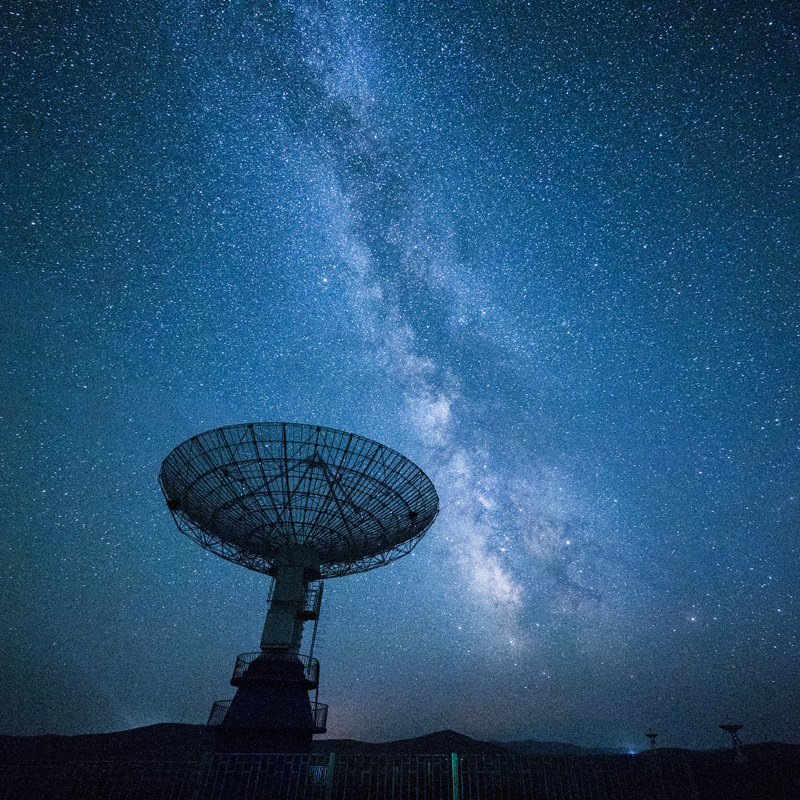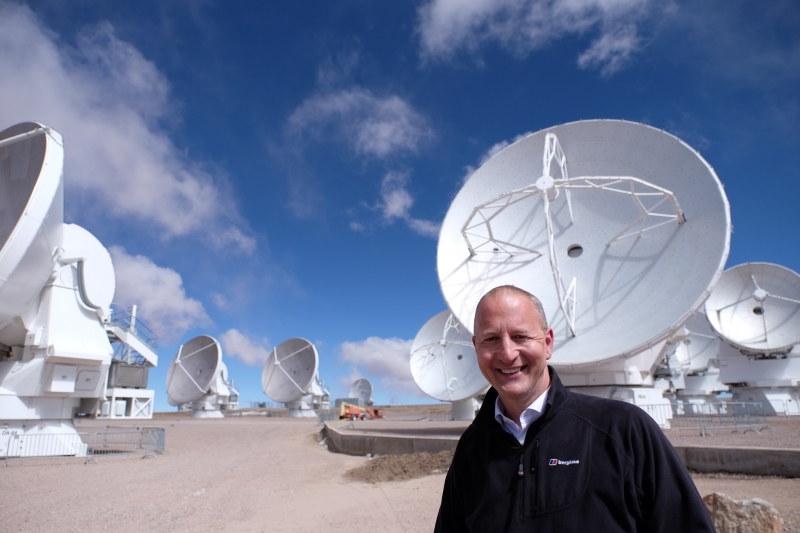This summer, the night sky has put on an impressive display of astronomical phenomena.

This summer, the night sky has put on an impressive display of astronomical phenomena. Noted events include the blood moon, a total lunar eclipse and Mars at its biggest and brightest in July; whilst August has brought us a partial solar eclipse and the Perseid meteor shower. Inspired by these celestial events, the 30th General Assembly of the International Astronomical Union currently taking place in Vienna, and the Astronomy category of our annual photography competition, we caught up with Professor Rob Ivison, the Astronomy Subject Editor for Royal Society Open Science, and asked him a few questions.

1. Tell us more about your field of research.
Astronomy represents the divine intersection of science and art. What I do is esoteric by most standards, but normal in astrophysics. I meddle mainly with faint smudges – galaxies comprising countless new-born stars, black holes and Lord knows what else, buried in cocoons of dusty gas – in far-flung regions of the Universe. The golden rule seems to be that I get interested in things that are ridiculously difficult to study and explain.
2. What inspired you to pursue a career in astronomy?
There was no eureka moment. Indeed, I noticed only years afterwards that an automated careers questionnaire at high school had pointed me towards astronomy. As a youngster, my maternal grandparents – farmers – took me on trips to Jodrell Bank to see the big dish that I used subsequently for some of my doctoral work. Back then, neither they nor I had any idea it was related to astronomy. Instead, I stumbled upon astronomy by accident, at university, and found that it inspired me like nothing else I’d encountered – a lethally attractive combination of physics, chemistry, geology, computing, asking the very biggest questions, and potentially leading us to the answers we need to survive as a species. No big deal, eh? I had some gifted teachers. They know who they are.
3. Who were/are your astronomy heroes and why?
I admire those who take an unorthodox but careful approach to science. Coming from a small unfashionable town in northern England, I also tend to side with the underdog – those that have faced adversity. My heroes and heroines are still alive, and their heads are better the size they are now. In my experience, those that get lauded rarely did the groundwork. If I must, I’ll single out the engineers responsible for the immense leaps forward in submillimetre astronomy that culminated with ALMA and Herschel. Again, they know who they are.
4. What can we do to encourage a more diverse range of people to pursue careers in astronomy?
We could start by not encumbering students with debt. We could give teachers the respect they deserve, such that our classrooms can be filled by STEM-qualified professionals, which is not to say that our current cohort of teachers is anything but superb. We could ensure that folk with a diverse range of accents and appearances show up on our TV screens. We must keep up the pressure on our leaders to ensure that the diversity of scientists entering and leaving the pipe is maximised. Although counter-examples exist – take a look at the life of the inestimably brilliant James Clerk Maxwell – increasing diversity would be amongst the easiest wins available to us, were it not for how adept some groups are at perpetuating their privilege. We must take steps to make the system less easily gamed, and hold those at the top accountable for their action or inaction.
5. What do astronomers look for when publishing work in journals?
Rigorous and speedy implementation of high standards of peer review by trusted editors; a journal associated with an academic society is very much preferred, such that public money does not haemorrhage from the field to which it was allocated; open access, though in astronomy this is achieved easily via the arXiv, such that money rarely needs to change hands; lastly, many insist on the highest standards of presentation, both grammatical and visual. My prose has insufficient elegance to survive further butchery, and my visuals need all the help they can get.
6. What advice would you give to someone who wants to submit to Royal Society Open Science, in particular to the astronomy section?
Contact us, particularly if you are interested in penning a cutting-edge review of your field, our specialty at Royal Society Open Science.
7. What do you think are the most interesting developments/hot topics in the astronomy field at the moment?
Interest in exoplanets and astrobiology is still growing strongly, for obvious reasons. A new generation of astronomers is becoming interested in transient phenomena such as the mergers of neutron stars, alongside the old-timers in this field, driven by developments surrounding gravitational waves and fast radio bursts, and the imminent arrival of the Large Synoptic Survey Telescope.
8. What are you most looking forward to hearing about at the IAU General Assembly?
I’m looking forward to a session about the science driving the European Extremely Large Telescope. This billion-Euro monster has a 39m mirror, bigger than all the existing major telescopes in the world put together, with a dome the size of Wembley, and is being built atop a remote 3000m mountain in Chile by the European Southern Observatory. This is an area where Europe has taken a commanding but perhaps surprising lead, and where scientists and engineers in the UK are still very much engaged, alongside those from most other European nations.
Royal Society Open Science welcomes research articles, evidence synthesis articles, invited reviews and Registered Reports. We offer high quality assessment on the basis of objective peer review and embrace open research principles such as open access, open data and open peer review.
The Royal Society Publishing photography competition will be closing for entries on 31 August.
Some responses have been edited to match house style.
Image credit: Professor Rob Ivison, by Professor Franz Kerschbaum.
